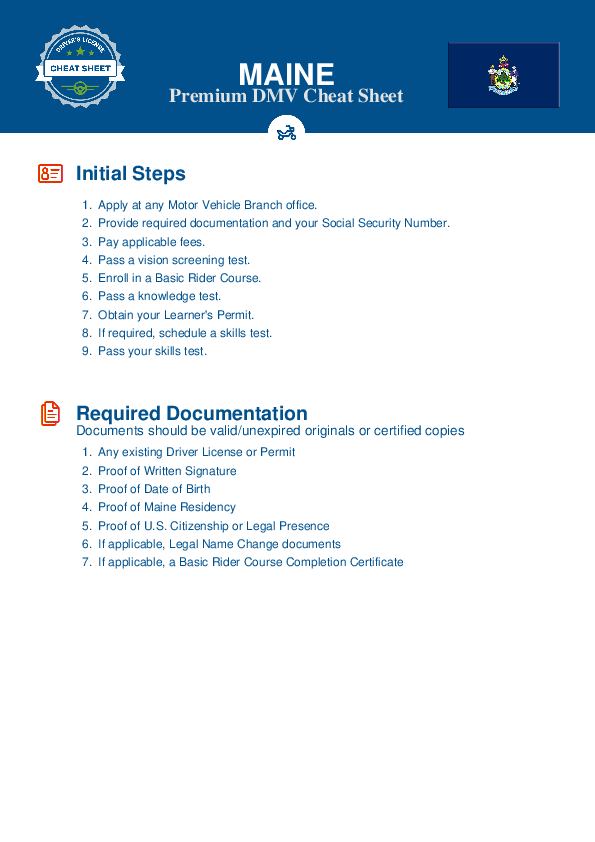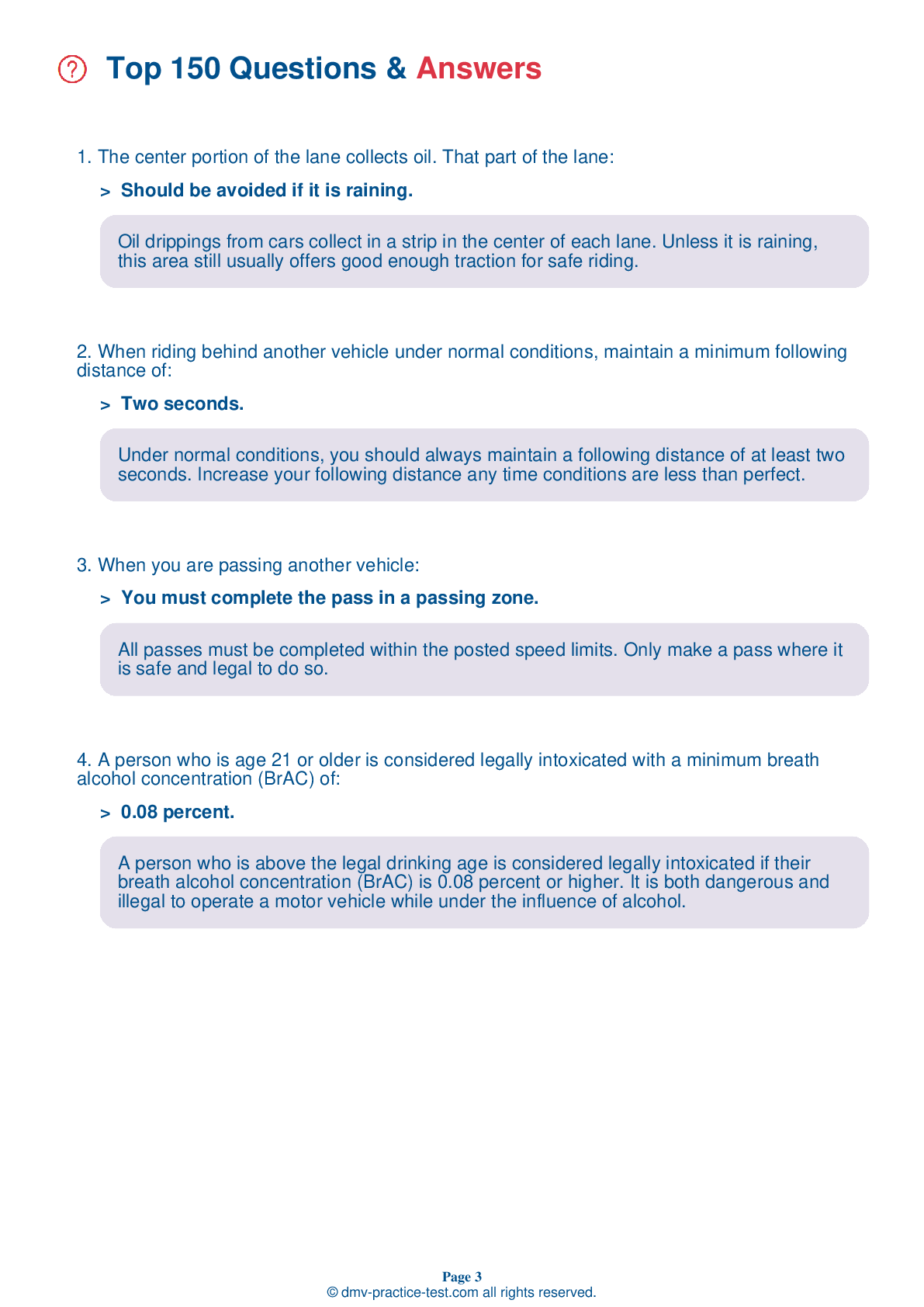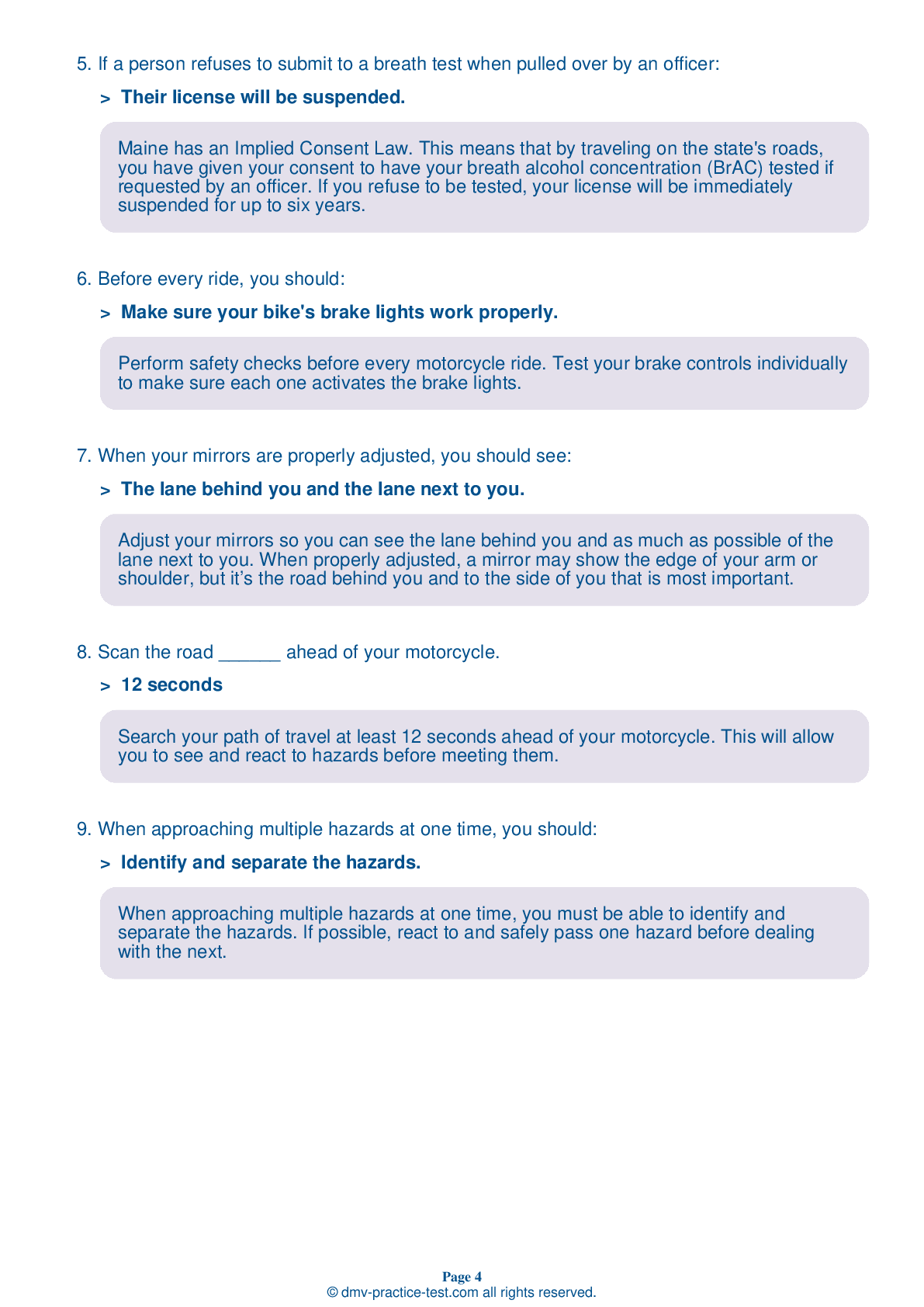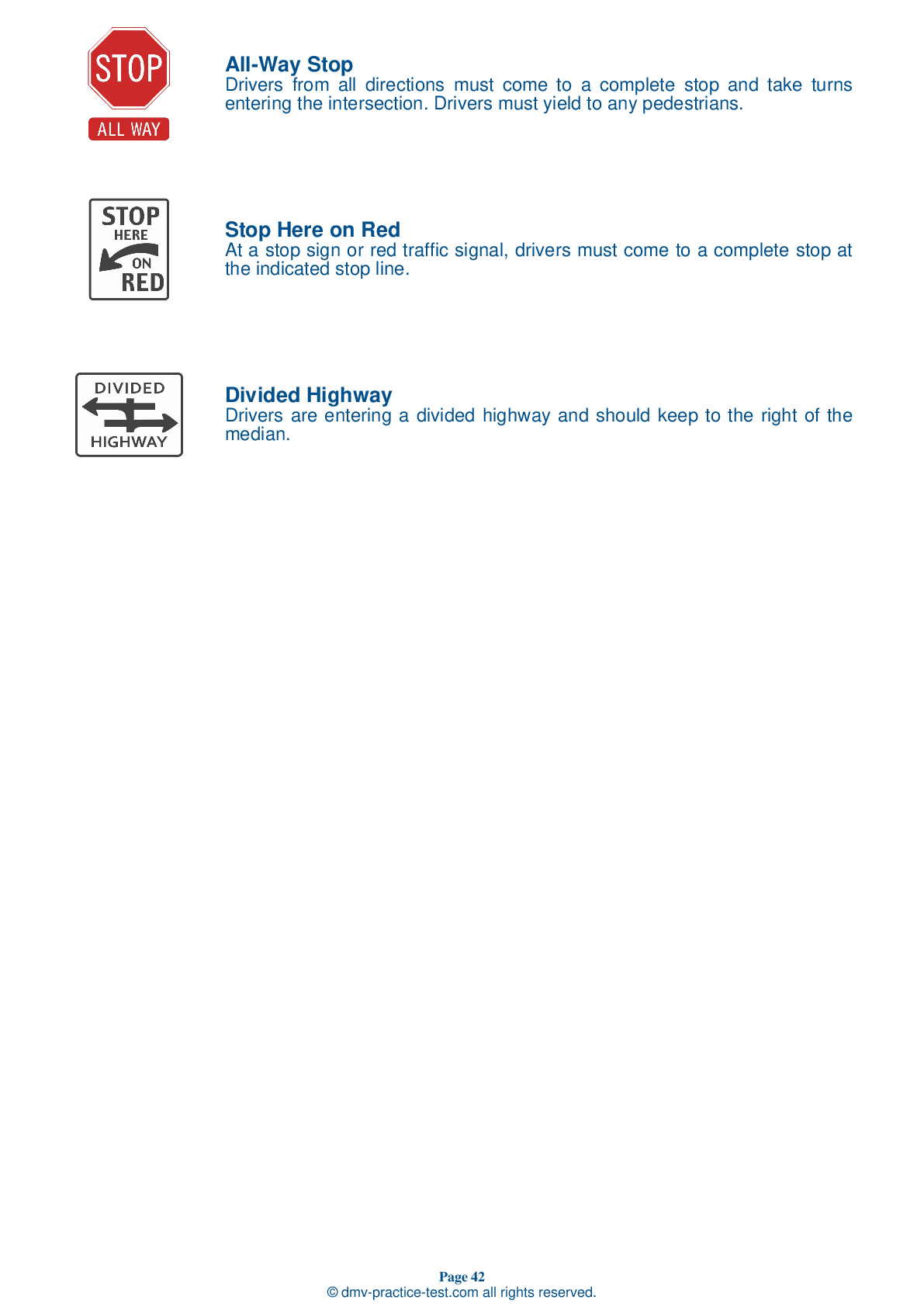Motorcycle Test | License ME 2026 | FREE Online Practice! #1 Page 3 of 7
Take this FREE motorcycle test (license in ME 2026) to check your knowledge of the road rules. To improve your results, download a motorcycle handbook online, study theory, and practice for free on our website. Still worried about how to get a motorcycle license in Maine in 2026? Check our website for more sample tests, train as much as possible, and boost your grades!
15 . If you are being chased by a dog, you should:
If a dog is chasing your motorcycle, downshift and slowly approach the dog. Once you have gotten close to the animal, accelerate and leave it behind. Do not attempt to kick it.
16 . On which of the following surfaces does a motorcycle have the best traction?
A number of surfaces can provide poor traction for tires. Wet pavement; roads covered in loose gravel or sand; muddy, snowy, or icy areas; painted lane markings; and metal covers and plates in the road can be more hazardous for a motorcyclist than dry pavement.
17 . As an operator, you should prepare a passenger to ride by instructing them to do each of the following, except:
Before beginning a ride, you should ask your passenger to mount the motorcycle only after the engine has been started. They should sit as far forward as they can without crowding you and hold onto the motorcycle's passenger handholds or onto your waist, hips, or belt. They should keep their legs away from the muffler, chains, and other moving parts.
18 . When operating a motorcycle on a slippery surface, you should:
When riding on slippery surfaces, you should reduce your speed. Make certain to use both brakes when braking and avoid making sudden moves.
19 . From the center lane, which maneuver(s) can you perform?
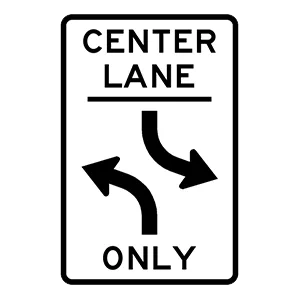
This sign indicates where a lane is reserved for the exclusive use of left-turning vehicles from either direction. Such a lane may not be used for passing or for through-traffic.
20 . When approaching a blind intersection, you should:
When approaching a blind intersection, move into the part of the lane that will bring you into an oncoming driver's field of vision at the earliest possible moment. For example, when approaching a blind corner to your right, you may be seen sooner if you are in the left portion of your lane and not in the center portion.
21 . If a friend has been drinking alcohol and wants to drive, which of the following should you not do?
There are several strategies you can use to prevent someone from driving while under the influence of alcohol. You can arrange another way for them to get home, involve them in other activities to slow their pace of drinking, use any available excuse to stop them from leaving before they are sober, and get other friends involved to intervene as a group.
See the exact questions that will be on the 2026 Maine DMV exam.
99.2% of people who use the cheat sheet pass the FIRST TIME
Jeneen was tired of paying $5/gallon. She got herself a scooter that required the motorcycle license. She studyed the motorcycle test cheat sheet and passed her test the next day!
Christopher tells us how he knew nothing prior to obtaining the motorcycle study guide, and he only got one question wrong because he clicked on the wrong answer by mistake.
